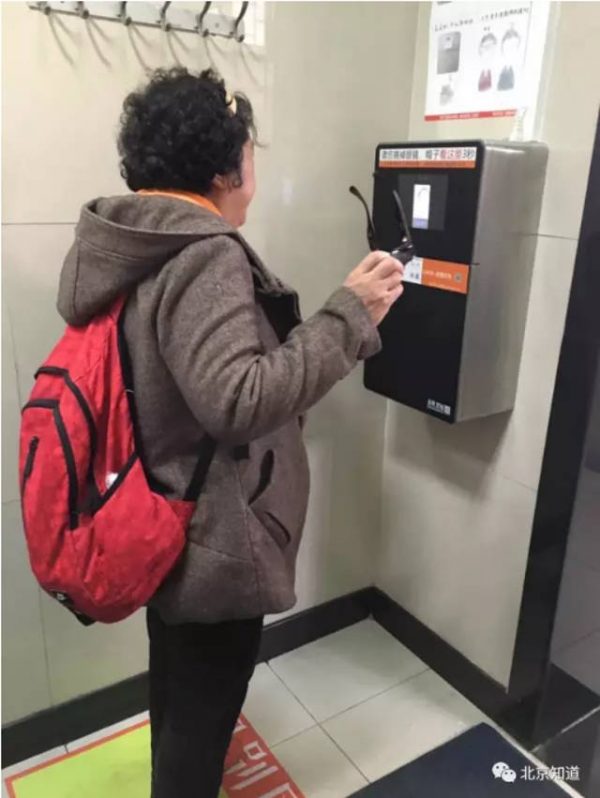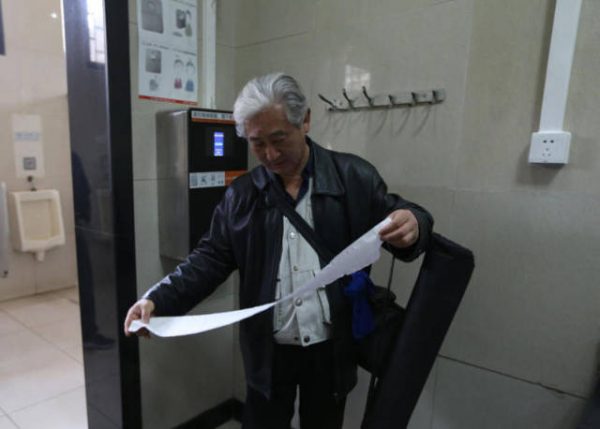To combat the rampant toilet paper theft in public toilets, local authorities in Beijing, China, have begun installing high-tech facial scanners that prevent users from taking any more toilet paper if they show up again within a certain period of time.
The public toilets at the Temple of Heaven, one of the most popular tourist attraction in the Chinese capital, used to be a hotbed of toilet paper theft. Sick of wasting huge amount of money on thousands of rolls of paper every month, local authorities recently replaced the old dispensers with high-tech ones with incorporated facial scanning technology.
Now, to receive a 60-cm-long sheet of toilet paper, users must stand in front of the machine to have their face scanned and stored in a temporary data base. If they return in less than nine minutes from their previous visit, the machine will remember them and will not dispense anymore toilet paper.
This new system aims to cut long-term costs by allocating a reasonable number of toilet paper sheets to every visitor.
The move is believe to have been prompted by a journalistic investigation by the Beijing Evening News, which revealed that many visitors at the Temple of Heaven visited the four-star public toilets there multiple times just to steal as much toilet paper as they could carry.

The facial-scanning toilet dispensers have been installed as a two-week trial. If the response of the public is negative, they will be taken down, but if the people have no problem with having their faces scanned every time they use the toilet, and they prove effective, the new technology could find its way to other toilets around Beijing, and even other Chinese cities.
To ensure that everything goes smoothly during the two-week trial, human workers are on hand in every public toilet to instruct people on how to use the machines.

So far the response from the general public has been mixed, with some arguing that 60-cm of toilet paper simply isn’t enough, and others applauding the idea and urging authorities to make it available nation-wide.
source: oddity central
